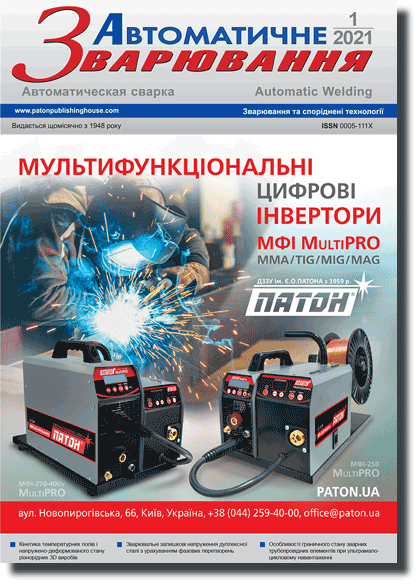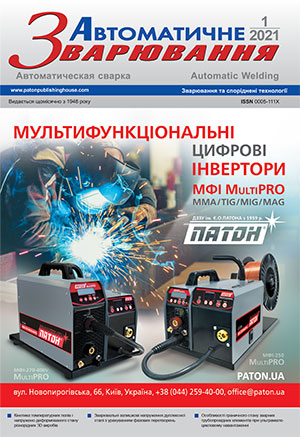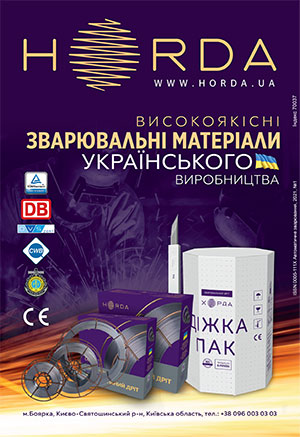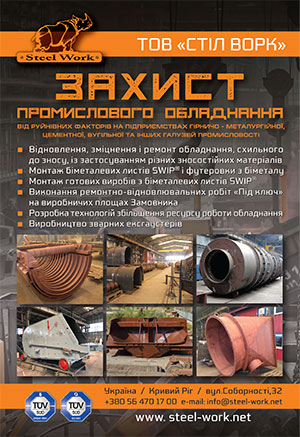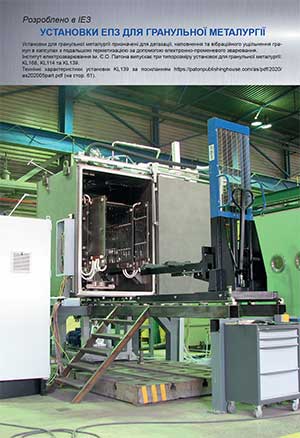| 2021 №01 (08) |
DOI of Article 10.37434/as2021.01.09 |
2021 №01 (01) |
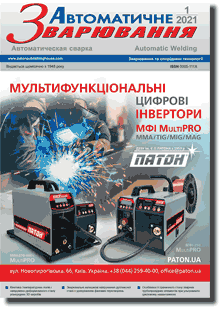
"Avtomatychne Zvaryuvannya" (Automatic Welding), #1, 2021, pp. 50-60
Mathematical models of the dependence of mechanical properties on chemical composition of steels for ESW
S.V. Egorova, O.V. Makhnenko, G.Yu. Saprykina, D.P. Sineok
E.O. Paton Electric Welding Institute of the NAS of Ukraine. 11 Kazymyr Malevych Str., 03150, Kyiv, Ukraine. E-mail: office@paton.kiev.ua
The paper deals with the possibility of constructing mathematical models of the dependence of mechanical properties of silicon-manganese steels designed for ESW, which have high brittle fracture resistance in the HAZ, as well as of the overheated zone, on chemical composition. Data on mechanical properties of these steels were obtained as a result of studying the influence of additional alloying (microalloying) of silicon-manganese steel by manganese, chromium, vanadium, boron, cerium and zirconium on overheating resistance at electroslag welding. The method of multiple linear regression was used for construction of mathematical models. Mathematical models were constructed for the following set of base metal mechanical properties: impact toughness for temperatures of (+20, –40, –60, –70 °С), yield limit, ultimate strength, relative elongation and reduction in area. For overheated zone at electroslag welding mathematical models were constructed for impact toughness (KCU and KCV) for temperatures of +20, –60, –70 °С. Initial validation of the constructed models was performed. 9 Ref., 12 Tabl., 2 Fig.
Keywords: silicon-manganese steels, chemical composition, microalloying, mechanical properties, mathematical models, electroslag welding
Received: 10.12.2020
References
1. Egorova, S.V. (1988) Alloying of Steel and its weldability in electroslag welding without subsequent normalizing. Kiev, AS USSR, National Welding Committee [in Russian].2. Demidenko, E.Z. (1981) Linear and nonlinear regression. Moscow, Finansy i Statistika [in Russian].
3. Seber, G. (1980) Linear regression analysis. Moscow, Mir [in Russian].
4. Linnik, Yu.V. (1962) Least squares method of and fundamentals of mathematical-statistical theory of processing observations. 2nd Ed. Moscow, Fizmatgiz [in Russian].
5. Gmurman, V.E. (2004) Probability theory and mathematical stitistics. In: Manual for higher education inst. 10th Ed. Moscow, Vysshaya Shkola [in Russian].
6. Eliseeva, I.I., Yuzbashev, M.M. (2002) General theory of statistics: Manual. 4th Ed. Ed. by I.I. Eliseeva, Moscow, Finansy i Statistika [in Russian].
7. Egorova, S.V., Sterenbogen, Yu.A., Yurchishin, A.V. et al. (1980) New structural steels not requiring normalizing after electroslag welding. Avtomatich. Svarka, 11(332), 44–46, 59 [in Russian].
8. Egorova, S.V., Yurchishin, A.V., Solina, E.N. et al. (1991) Cold-resistant steel 09KhG2SYuCh of higher strength for pressure vessels. Ibid., 12(465), 37–42 [in Russian].
9. Egorova, S.V., Lyashchuk, Yu.S., Krendelyova, A.I. et al. (1992) Investigation of resistance to temper brittleness of welded joints produced by electroslag welding without normalizing. Ibid., 2(467), 8–10 [in Russian].
Advertising in this issue:
The cost of subscription/purchase order journals or individual articles
| Journal/Currency | Annual Set | 1 issue printed |
1 issue |
one article |
| TPWJ/USD | 384 $ | 32 $ | 26 $ | 13 $ |
| TPWJ/EUR | 348 € | 29 € | 24 € | 12 € |
| TPWJ/UAH | 7200 UAH | 600 UAH | 600 UAH | 280 UAH |
| AS/UAH | 1800 UAH | 300 UAH | 300 UAH | 150 UAH |
| AS/USD | 192 $ | 32 $ | 26 $ | 13 $ |
| AS/EUR | 180 € | 30 € | 25 € | 12 € |
| SEM/UAH | 1200 UAH | 300 UAH | 300 UAH | 150 UAH |
| SEM/USD | 128 $ | 32 $ | 26 $ | 13 $ |
| SEM/EUR | 120 € | 30 € | 25 € | 12 € |
| TDNK/UAH | 1200 UAH | 300 UAH | 300 UAH | 150 UAH |
| TDNK/USD | 128 $ | 32 $ | 26 $ | 13 $ |
| TDNK/EUR | 120 € | 30 € | 25 € | 15 € |
AS = «Automatic Welding» - 6 issues per year;
TPWJ = «PATON WELDING JOURNAL» - 12 issues per year;
SEM = «Electrometallurgy Today» - 4 issues per year;
TDNK = «Technical Diagnostics and Non-Destructive Testing» - 4 issues per year.




